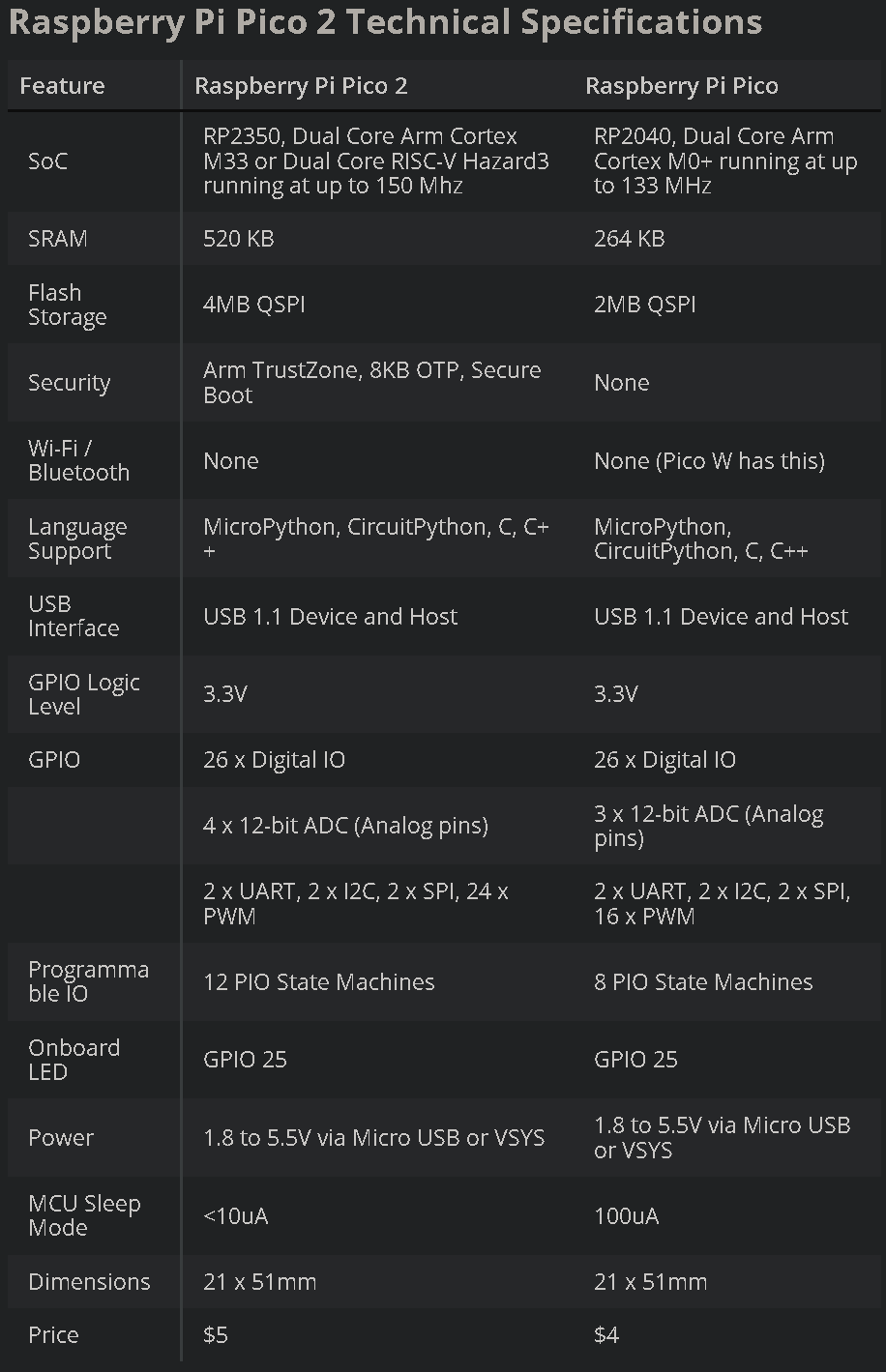I wonder if they plan on transitioning fully to RISC-V in the future, it would be cool if that cuts the price down by $1 or so. The Pico series is the only Raspberry Pi product line that interests me these days. Love seeing the increased speeds with decreased power consumption, and the additional PIO state machines are a nice touch. Looking forward to seeing the Pico 2 W!
I believe they got a $0 license for the M0+ cores in the 2040. Don’t know about the new 2350. The addition of Risc-v cores might be a flex to defend against future issues with ARM.
Going from two PIO blocks to three seems timid. Why not hundreds, like one for each gpio pin? And maybe redesign the PIO to allow more than 32 instructions? They are tiny, anyway.
Anyone know if there is any software for the Risc-v cores so far? Compilers, Micropython, etc.
deleted by creator
Raspberry Pi Pico 2 Technical Specifications[1]
Feature: Raspberry Pi Pico 2 | Raspberry Pi Pico
SoC: RP2350, Dual Core Arm Cortex M33 or Dual Core RISC-V Hazard3 running at up to 150 Mhz | RP2040, Dual Core Arm Cortex M0+: running at up to 133 MHz
SRAM: 520 KB | 264 KB
Flash Storage: 4MB QSPI | 2MB QSPI
Security: Arm TrustZone, 8KB OTP, Secure Boot | None
Wi-Fi / Bluetooth: None | None (Pico W has this)
Language Support: MicroPython, CircuitPython, C, C++ | MicroPython, CircuitPython, C, C++
USB Interface: USB 1.1 Device and Host | USB 1.1 Device and Host
GPIO Logic Level: 3.3V | 3.3V
GPIO: 26 x Digital IO | 26 x Digital IO
Row 9 - Cell 0: 4 x 12-bit ADC (Analog pins) | 3 x 12-bit ADC (Analog pins)
Row 10 - Cell 0: 2 x UART, 2 x I2C, 2 x SPI, 24 x PWM | 2 x UART, 2 x I2C, 2 x SPI, 16 x PWM
Programmable IO: 12 PIO State Machines | 8 PIO State Machines
Onboard LED: GPIO 25 | GPIO 25
Power: 1.8 to 5.5V via Micro USB or VSYS | 1.8 to 5.5V via Micro USB or VSYS
MCU Sleep Mode: <10uA | 100uA
Dimensions: 21 x 51mm | 21 x 51mm
Price: $5 | $4
Screenshot of Specs:

I wonder if the Alpakka controller can get advantage of this… Thank you and have a nice day
I was going to say $5 is pricy before I remembered it was dev boards and not chips.
Important note on the flash is that both chips have the same 16MB max, and 3rd party pico boards would often just use max spec. The pico 2 additionally supports PSRAM sharing the flash’s qspi





